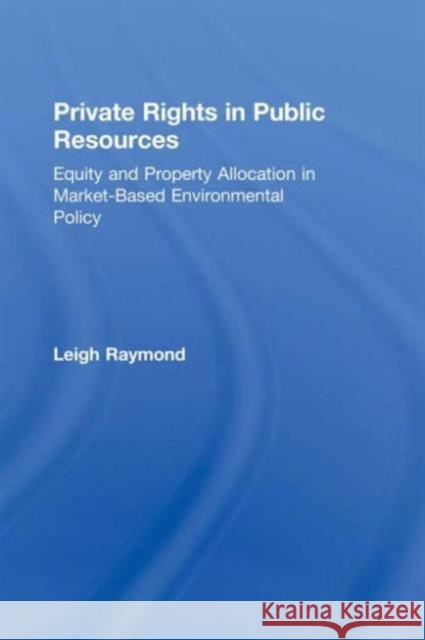Private Rights in Public Resources: Equity and Property Allocation in Market-Based Environmental Policy » książka
Private Rights in Public Resources: Equity and Property Allocation in Market-Based Environmental Policy
ISBN-13: 9781891853685 / Angielski / Miękka / 2003 / 264 str.
Private Rights in Public Resources: Equity and Property Allocation in Market-Based Environmental Policy
ISBN-13: 9781891853685 / Angielski / Miękka / 2003 / 264 str.
(netto: 167,88 VAT: 5%)
Najniższa cena z 30 dni: 174,11
ok. 22 dni roboczych.
Darmowa dostawa!
Privatizing public resources by creating stronger property rights is an increasingly popular environmental policy option. While advocates of this type of market-based' environmental policy tend to focus on its efficiency and ecological implications, such policies also raise important considerations of equity and distributive justice. This book confronts these ethical implications by showing not that equity ideas should influence such policies, but how in fact they already do so. Clean Air Act Amendments (CAAA) and the 1934 Taylor Grazing Act (TGA), Raymond documents and explains the role of equity norms in both market-based policies. The author reviews legislative records, administrative documents, and interviews key policymakers to confirm that much of the debate over both programmes centred on the equity or fairness of the initial allocation of property rights. He then uses the property theories of John Locke, Morris Cohen and others to build a framework for identifying the competing norms of equity in play. Despite different historical and ecological settings, in both cases political actors struggled to reconcile remarkably similar arguments, with results that evoke the Hegelian theory of ownership. The prominence of equity arguments and Hegelian outcomes in the two allocations contradicts the traditional view that the TGA and the CAAA simply grandfathered rights to existing users. More generally, the book shows that equity plays a central role in shaping market-based policies, and that scholars of public policy would do well to study and inform that part of the process.











